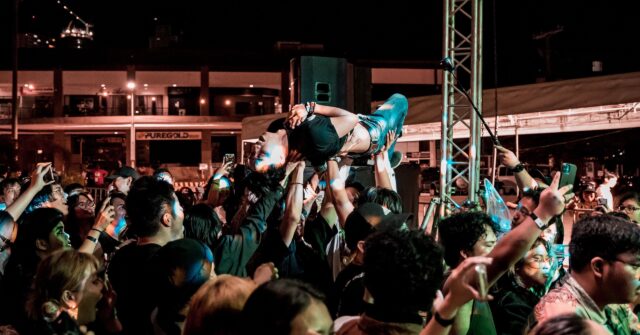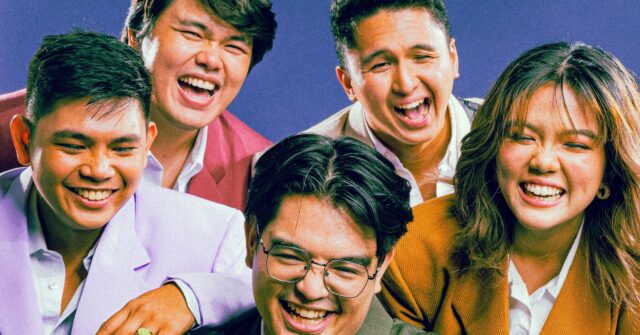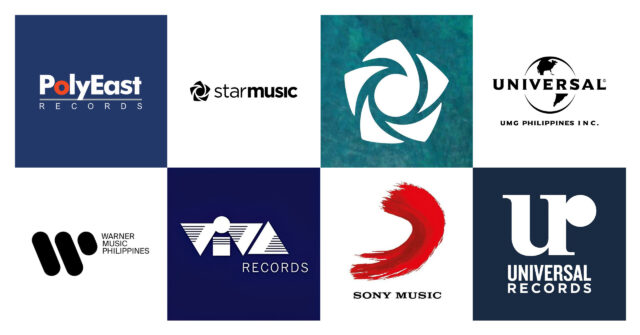Oftentimes, aspiring musicians start their careers as independent — indie, as it’s better known — artists. This is the stage of a musician’s life where everything is do-it-yourself, from booking your own gigs, designing your own publication materials, maintaining social media pages, and every nitty-gritty detail in between. While the advent of the Internet has made it much easier to self-release your own music, the sheer number of artists and music available online has made it difficult to stand out and break into the mainstream.
Of course, artists have options. Put in enough work, and record labels may take notice of your music. They may offer recording deals, distribution deals, or sign you up to be a part of their roster. While there are some musicians that decide to go that route, there are those who decide to take a leap of faith and remain independent.
One of those groups is pop band Any Name’s Okay, composed of members Sof Abrogar, Renzo Lumanog, Juan Lada, Arvin Olete, and Anton Atienza. Despite choosing to stay independently managed, the band has received numerous recognitions for their music. In 2019, they were nominated for the Awit Awards Album of the Year and Best Performance by a Group Recording Artist. In this year’s Awit Awards, they currently hold nine nominations, including Album of the Year, Song of the Year, Best Performance by a Group Recording Artist, and more.
Any Name’s Okay recently celebrated their six year anniversary as a band, and while they have been on the rise since then, they’ve also had to overcome some challenges along the way.
Making the choice to stay independent
“[At the start], our only gigs were bar gigs in Manila. We played a show at Saguijo and there were like five, six people. It was so unpredictable. I like that it’s not one set pattern, that we have to do these certain things, hit these certain goals, be on TV, or sign to a certain label to be successful,” shares Lumanog to Billboard Philippines. Despite the unpredictability, Lumanog shares that what has stayed constant is their commitment to how they craft their sound.
Lumanog continues to share that originally, they didn’t even want to sign with a label. “We thought that signing with a label only meant that they had full control of [your music].”
As discussions proceeded, they were able to strike a deal with Sony Music Philippines first as a distribution deal, then as a recording artist. However, they chose to stay self-managed.
“We didn’t want to lose control of what we had. Sometimes, we can say that ‘oh, this was iffy’ or ‘oh, maybe it was right to release this right now.’ At least, when we all get together, it was a decision we all made. It wasn’t a decision that someone made for us.”
With self-managing, beyond just booking gigs, Any Name’s Okay also have the freedom to produce their own music, and more. It was also what pushed them to birth SYQL Productions, an event production house that hosts gigs such as The Ridley’s seventh anniversary show, Walk! Man featuring Japan’s Ichika Nito, Munimuni’s “Kapayapaan” (Peace) single release launch, and more.
Staying independently managed has also given Any Name’s Okay full ownership over their creative direction, which is both a “chore” — given that all of them have to work on all aspects of music, from the administrative parts, marketing, to producing their songs — but also the freedom to chart their own path.
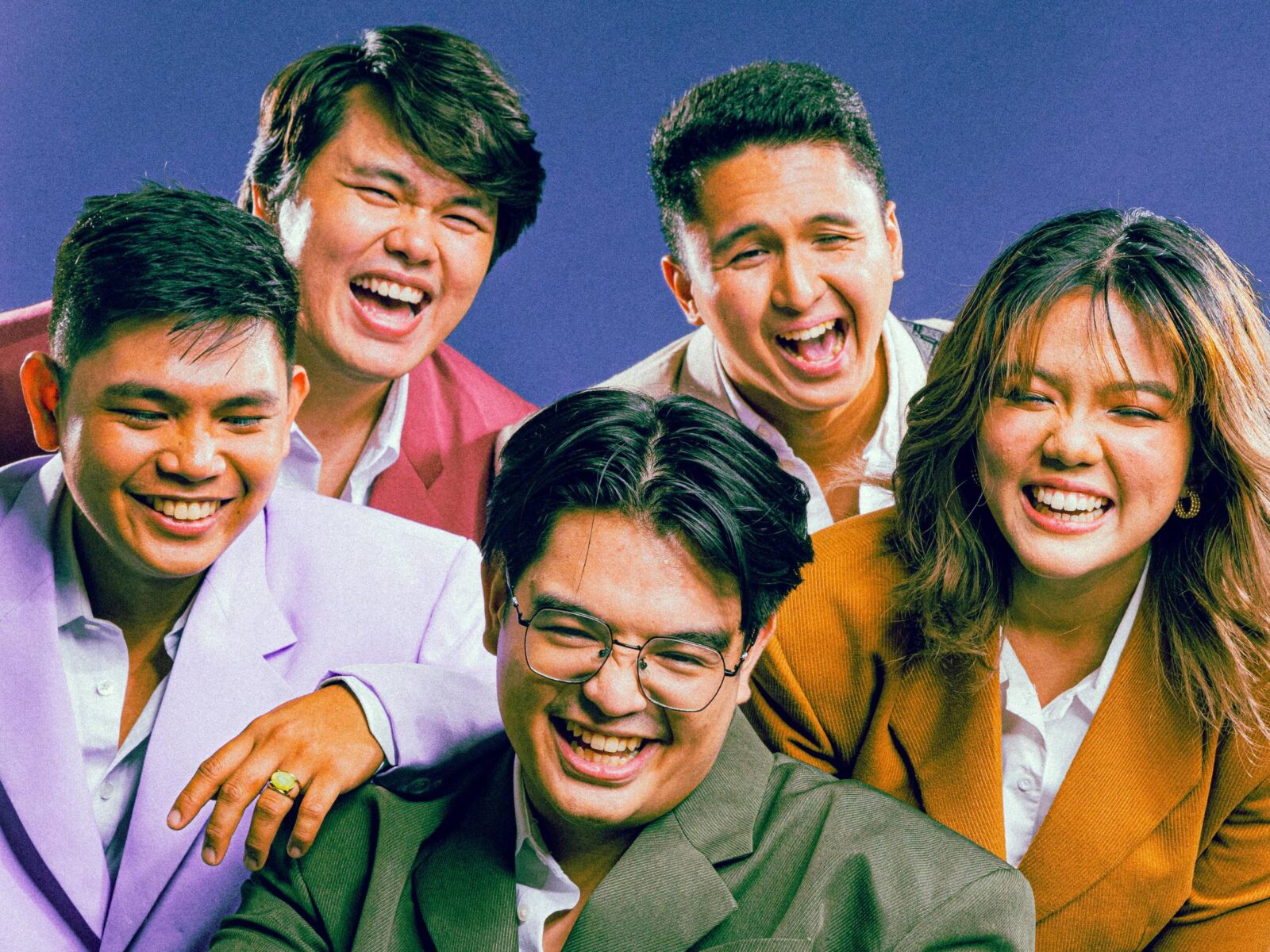
Mike Perfecto
Making music that ‘grows up with your audience’
As an independent band, Abrogar shares that they wouldn’t be who they are today if it weren’t for their community of listeners over the years. Any Name’s Okay has over 100,000 monthly listeners on Spotify, with six songs having over a million streams a piece.
“When we talk about community, it also comes from [both the audience] and musicians,” shares Lumanog. He talks about one of the band’s mentors, Benny Manaligod of The Ridleys, who often shares insights regarding music and how to build communities with the band. “Whenever people come up to us and say that they listen to our music, I don’t take that lightly. Even if it’s just one person, it matters.”
That phenomenon is something that the band has witnessed over the years. They’ve learned that the secret to turning first-time listeners into long-time fans is by “changing your sound in a way that you grow up with your listeners.”
He cites The Maine, a pop punk band that first started in 2007. Lumanog shares that while they may not have the biggest fanbase in terms of numbers, their fans are some of the most loyal and dedicated listeners in the world. “The people who come out to their shows will know every single word.”
Lumanog goes on to say that for anyone, the songs that you listen to when you’re 17 will eventually grow on you over time, even if you don’t stay 17 forever. “The reason why our community works is that we don’t look down on them. We don’t look down on anyone…it’s like, ‘yeah, you like what you like. Eventually you’re going to grow out of it, and that’s fine.’ That’s the philosophy we try to follow. It’s not like, ‘we have to make a hit!’ but more of, how do we create something that, even when we grow up, we can still listen to.”
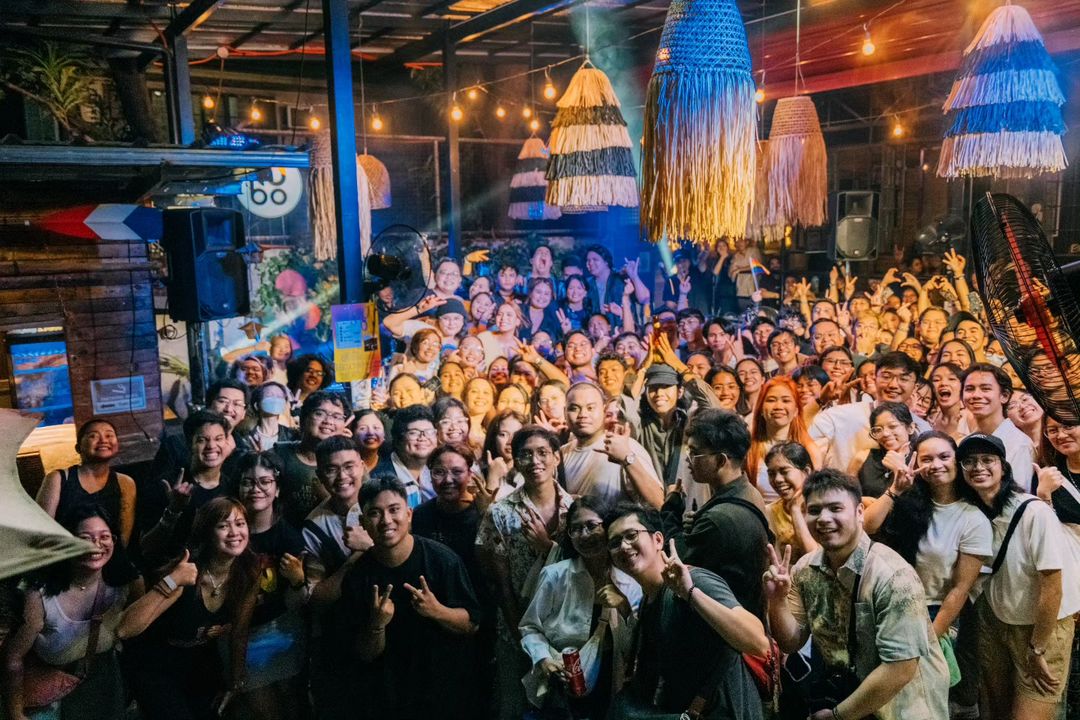
@elyandredagli
Creating closer relationships with listeners
As they speak over each other, the band explains that talking to people at gigs, replying to messages, and being friends with their fans is why they’ve been able to create and maintain this tight-knit community.
One of the things Any Name’s Okay worked on was keeping their social media pages active. It was a conscious effort, Lumanog admits, since he describes that especially after the pandemic, it became “part of the game” of being a musician. However, just “playing the game” won’t guarantee artists a community.
Their community of listeners was built, largely in part of, playing a lot of gigs with similar bands. They’ve joined lineups especially with Over October and The Ridleys, and eventually grew a community that calls them “AnyOverRidleys,” more or less combining the individual fanbases of each band. The band shares that they were surprised that it formed the way it did. The “AnyOverRidleys” fans regularly go to gigs together, and have even formed friendships as a result of meeting at these gigs. The people who listen to their music are not just fans — a term that Any Name’s Okay doesn’t like using to describer their listeners — but friends; a real community of people.
“They even have their own Discord channel,” Lumanog says with a laugh. “We had a show in Pampanga, and people from as far as Cavite and Laguna traveled together as a group to attend the show. You can’t fabricate that. You can’t make that. It just happens if they like what you make.”
It all circles back to what the band describes should be the main focus of any musician or band looking to build a community — the attention to detail in the music they create. Everything stems from the quality of the music. If any musician wants to engage their listeners, it only comes from making music that resonates with them deep enough to continue coming back for more.
Atienza explains that even if an artist doubles down on marketing, the community will not be sustainable through the years, especially if you don’t put in the effort to engage and build personal relationships with the bands, whether it be through talking to them personally at gigs or even online.
In the age of social media, it may seem that image or branding is key. However, for Any Name’s Okay and other bands that choose to stay independent, it’s only by personally engaging with listeners that can truly make a band successful — not just streams, followers, or views.
By removing the traditional between “fan” and “artist,” music becomes less of an individual experience and more of a communal one; something that becomes a safe space for people to come together online and offline and enjoy the music they love.

